
A review of the new documentary Torn by National Geographic (now in UK cinemas and on Disney+ from 4 Feb.) with insight from director Max Lowe...
Max Lowe was just 10 years old when his famed mountaineer father Alex Lowe died in an avalanche on Shishapangma in 1999; old enough to have formed strong memories of Alex and his achievements, but too young to comprehend the void left behind by his death and its reverberations through his family. Max's mother Jennifer Lowe soon remarried Conrad Anker, Alex's climbing partner on the expedition, who survived the avalanche but suffered intense PTSD and survivor's guilt. Now aged 33, Max has candidly deconstructed the Lowe-Anker family's tragedy and togetherness in the documentary Torn, giving him a new perspective on their collective and individual traumas.
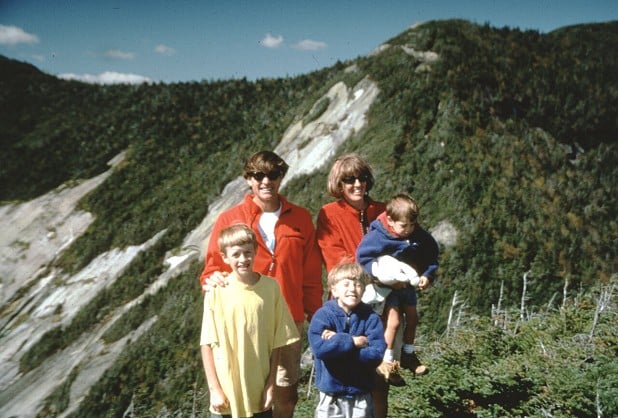
Torn offers a rare, introspective exploration of the other side of adventure—what happens when things go wrong and the implications for those left behind, who often carry the burden of conflicting emotions. It's a intimate portrayal of a man who increasingly felt torn between his passion for adventure and his longing for domestic life, and of a family torn apart by tragedy and torn between holding onto the past and embracing the present, but ultimately brought together through risk, chance and love.
"It's hard to find the courage and space to discuss difficult things with the people we love most," Max says in a video call from Montana. "You don't want to rock the boat too much. Asking my family to participate in the film was one of the first steps." Initially, the younger of his two brothers, Isaac, was unsure. Why should the family discuss something so personal publicly that they hadn't sufficiently broached amongst themselves, Isaac asks in Torn.
"I used the film as a tool to help me find the bravery to address some of these issues," Max says. He's at once a subject in the documentary and its driving force as filmmaker, giving him the chance to zoom in and out and explore the story from different perspectives. "I see the world through a storyteller's lens, so to be able to create this film that roots itself in one of the most traumatic events of my life was pretty remarkable and a huge gift that my family gave me," he explains.
"I've searched for resentment in the process of making this film, but I never found it because I want to push my own boundaries."
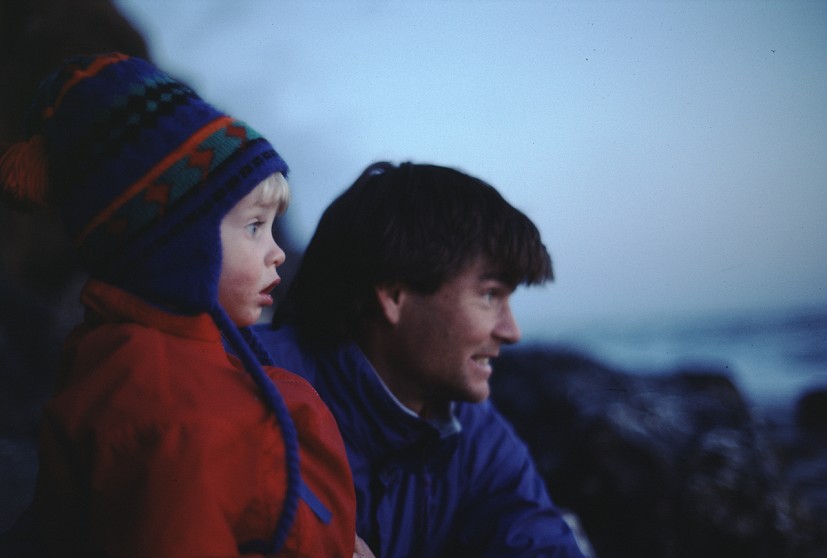
***
As a kid, Max wasn't fully aware of the risks that Alex - as he refers to him - took in the mountains, nor did he resent the time his father spent away from him and his brothers as he made cutting-edge first ascents in the USA, the Greater Ranges and beyond. "It was just his job, his life and I loved him for it," Max says. "For me, to have a dad who was an adventurer, whom you'd read stories about, who was travelling to the far side of the world and coming back to tell me these stories firsthand was just remarkable. I thought he was the coolest guy ever."
Known for his obsessive feats of strength and endurance in both training and performance, Alex earned the nicknames 'The Mutant' and 'Lungs with Legs.' Arguably the best all-round climber of his time, Alex vehemently rejected such claims: "I'm just the world's most dogmatic climber, hardheaded, very focused on the goal," he once said.
In his youthful optimism, Max never expected anything bad to happen. "You trust that the world is going to work out in your favour, up until it doesn't," he says. "For me that moment was when Alex was killed, losing not only this figure that I looked up to in this intense way, but also the trust and love that I held in our relationship."
Alex's body - and that of cameraman David Bridges - could not immediately be recovered. The lack of closure confused Max. He felt "frozen in time", while Alex seemed in some sort of limbo, "like an astronaut lost in space," he says in the film, making it hard to accept Conrad into the family as a father figure. For younger brothers Sam and Isaac, aged 7 and 3, their naïvety enabled a smoother transition. To them, Conrad was adopted as "Dad", while Alex remained a more distant, almost mythical, figure. Max was the only member of the family who chose not to adopt the 'Lowe-Anker' surname.
"I outran an avalanche, but two people didn't." - Conrad Anker
"It was challenging when Conrad stepped into our lives for me to reconcile," Max says. "We didn't have the specific physical closure of seeing Alex's body, but as a kid, it's also harder to understand the finality of death. I held onto this idea that maybe he was still alive and he would come home." There was also the realisation that Conrad was cut from the same climber's cloth as Alex—would he too leave the house one day and never return, continuing a cycle of tragedy?
Conrad grieved Alex's loss differently. He battled with survivor's guilt, made all the more heavy by the dependents that his close friend Alex had left behind: a wife and three sons. He felt suicidal, "Like it should have been me instead of Alex," he says in the film. "Because he had a young family. Because his life was worth more than mine." The intense responsibility that Conrad had felt towards Alex in life - while roped together as his climbing partner on risky endeavours - continued beyond Alex's death. Painfully aware that Alex had begun to question the time spent away from his young family while in Tibet, Conrad drives to the Lowe household to be present at their first Christmas following the accident, and fulfils Alex's wish to take his boys to Disneyland.
When Conrad and Jennifer unexpectedly fell in love, their relationship attracted unpleasant media attention. Alex's high profile led to mawkish interest in their story post-tragedy. Rumours and gossip ensued: Were they having an affair? Isn't it too soon?
In the film, even Max admits to feeling perplexed as to how his mother could apparently move on so quickly following Alex's death. In a difficult conversation, he comes to understand Jennifer's predicament as a young widow with three young children. "You don't have time to wait around. There's no time to overthink it," she explains to Max as a camera captures his emotions during the interview, breaking the fourth wall. "I'm not going to let the painful end be the end of me opening my heart," she adds. It's clear that Jennifer drew great emotional strength through processing her trauma and in continuing her life alongside Conrad, which she has passed on to her sons.
"I'm not going to let the painful end be the end of me opening my heart." - Jennifer Lowe-Anker
"In retrospect, I am not at all shocked that my mom and Conrad ended up together," Max says. "It was this big, shocking thing when it happened because of who Alex was and because Conrad was another climber living on the edge of risk." Max likens Jennifer and Conrad's relationship to those that occurred in the wake of World War Two, when surviving soldiers returned and married the wives of their friends who had died next to them. "I think that climbing is a very similar world and there are parallels, because if you go through these traumatic events together, even though it's confusing and difficult for people outside of it, you probably understand that there's no greater closeness that you could find in life," he says.
Conrad nonetheless felt a sense of imposter syndrome for having survived and stepped into Alex's hallowed shoes and his household. Occasionally, both he and Jennifer were tormented by dreams that Alex had returned alive, hurt by their situation.
"Part of my desire to make the film was to paint this picture of just what an amazing thing it was that Conrad ended up together with us," Max explains. "Just to quell any doubts or reservations that any of us might have had, that this is the right path because it's the path that we've found together." The film shows an awkward but heartwarming kitchen conversation between Max and Conrad - two hardened mountain men - in which they slowly work through their emotions and manage to find the words to express their love and gratitude for one another.
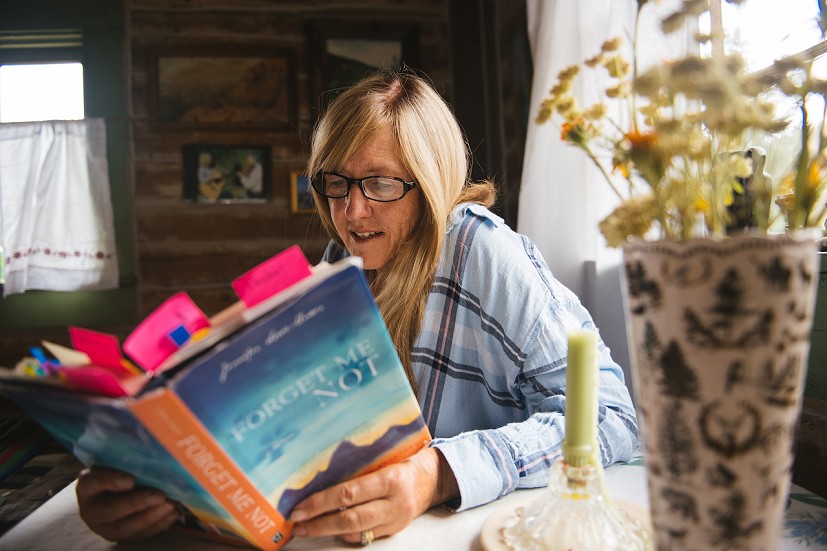
Torn is not the first film about the family. In 2007, the film The Endless Knot by Michael Brown (who was filming at Base Camp during the ill-fated expedition) examined Jennifer and Conrad's relationship and their commitment to finding meaning beyond tragedy in launching the Alex Lowe Foundation and the Khumbu Climbing Center. Max and his brothers were in their teens during filming, while Alex's body was yet to be discovered.
In 2016, a phone call from Swiss mountaineer Ueli Steck immediately thrust the family back to 1999. Steck and his German climbing partner David Goettler were at Base Camp on Shishapangma when they spotted an anomaly in the grey and white surroundings: the glacier had melted, and Alex and David Bridges' bodies were now visible. "Everything resurfaced," Conrad says in the film.
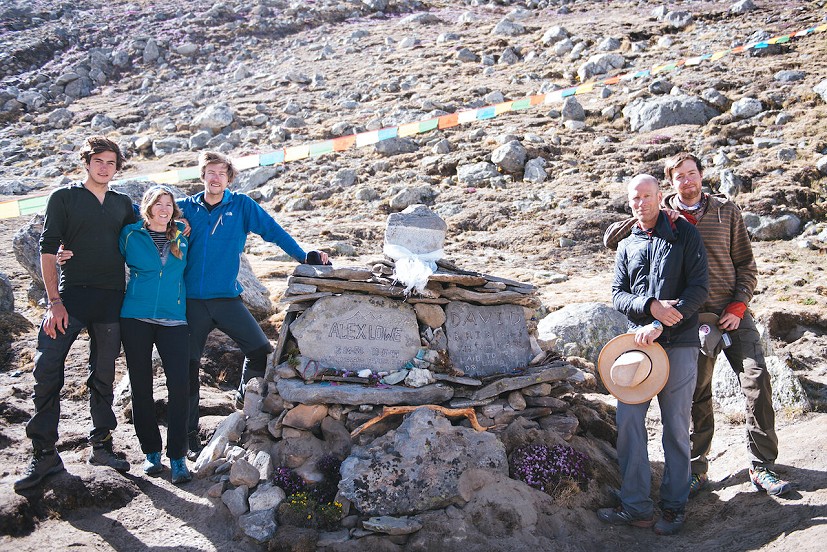
The family decided to recover Alex's remains together. The scene in Torn makes for tough viewing as they deal with the raw emotions upon seeing and cremating the bodies below the mountain. "I asked them if they would be OK with me filming that experience," Max says. "I didn't know if it would become anything, but I knew that having the footage of that experience could be a cathartic piece of our story to re-examine at some point."
The discovery and the footage from their pilgrimage became catalysts for creating Torn, leading to an in-depth exploration of archive materials. Max is shown observing footage from the 1999 expedition for the first time, including hard-to-watch scenes from the day of the avalanche, prefaced with a warning from filmmaker Michael Brown: "This isn't going to be very fun, Max."
Producing Torn, while difficult, has brought the family closer together and given them more agency in their story, Max says, after years of their narrative being constructed and misshapen in the public eye. "I think it all became a little impersonal to us," he explains. "The story of our lives became a story that didn't really feel like one in which we had all that much control, but in the making of the film and the exploration of all this stuff, from our perspective, we got to tell the other side of the story."
Influenced by early forays with his father and adventures with Conrad, Max enjoys skiing and mountaineering. In parallel, Alex's death has shaped his approach to risk. "It's made me more cautious because I know the sharp end of the deal in a very personal way," he says. "But at the same time, that's the world that I come from and know most intimately and I still find solace in the mountains. For me and for my brothers, the mountains will always be a place where we find a connection not only to the world beyond ourselves, but to our own heritage and history." Max explains that Sam, the middle son, grew to know Alex better through making the film, enabling him to come to terms with his own passion for the mountains and igniting a desire to pursue it further, since he now understands "why Alex did what he did."
Torn is reaching general audiences in cinemas worldwide. To the outside observer, mountaineering can seem a selfish endeavour. Max maintains that Alex's story is one that can inspire others. "Exploration has always been of benefit to mankind," he says. "Seeing someone pushing the boundaries of what we can do and what we know, whether that's in science or in storytelling, or climbing the highest mountains on earth, that inspires others to push the boundaries of humanity."
But he's also acutely aware that adventure comes at a price, as the son of a man who pushed the edge of risk and died doing it. "The risk versus reward question isn't really one that I try to draw too much focus towards," he explains. "I've searched for resentment in the process of making this film, but I never found it because I want to push my own boundaries. There's risk involved in pushing any boundary for personal gain. It might not be death, you might not be risking your life, but you're risking something, and I still look up to Alex for setting that example."
In 2021, Torn won Grand Prize at the Kendal Mountain Film Festival, and Best Feature Film at the Banff Mountain Film Festival.
- SKILLS: Top Tips for Learning to Sport Climb Outdoors 22 Apr
- INTERVIEW: Albert Ok - The Speed Climbing Coach with a Global Athlete Team 17 Apr
- SKILLS: Top 10 Tips for Making the Move from Indoor to Outdoor Bouldering 24 Jan
- ARTICLE: International Mountain Day 2023 - Mountains & Climate Science at COP28 11 Dec, 2023
- ARTICLE: Did Downclimbing Apes help Evolve our Ultra-Mobile Human Arms? 5 Dec, 2023
- ARTICLE: Dàna - Scotland's Wild Places: Scottish Climbing on the BBC 10 Nov, 2023
- INTERVIEW: Loki's Mischief: Leo Houlding on his Return to Mount Asgard 23 Oct, 2023
- INTERVIEW: BMC CEO Paul Davies on GB Climbing 24 Aug, 2023
- ARTICLE: Paris 2024 Olympic Games: Sport Climbing Qualification and Scoring Explainer 26 Jul, 2023
- INTERVIEW: Malcolm Bass on Life after Stroke 8 Jun, 2023



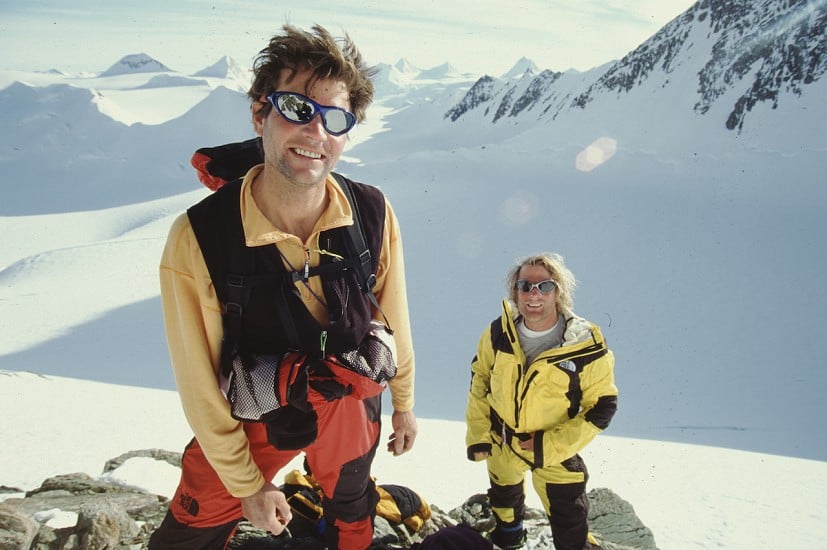
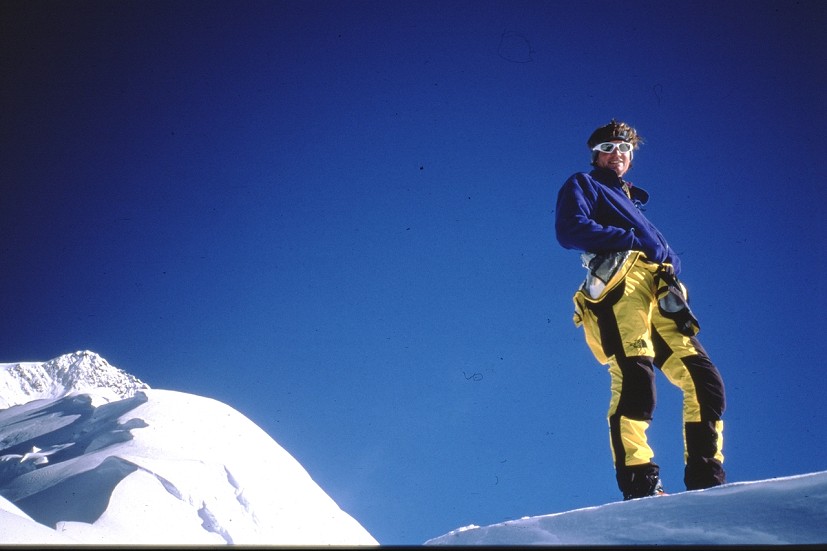
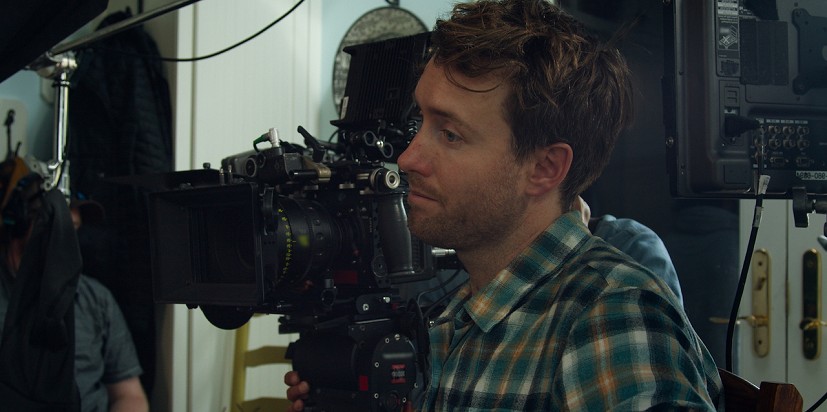

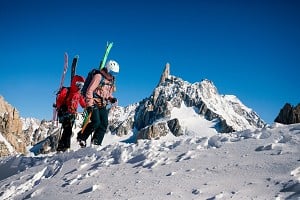
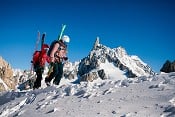
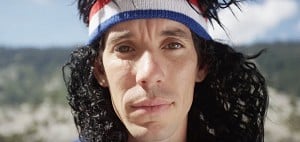







Comments